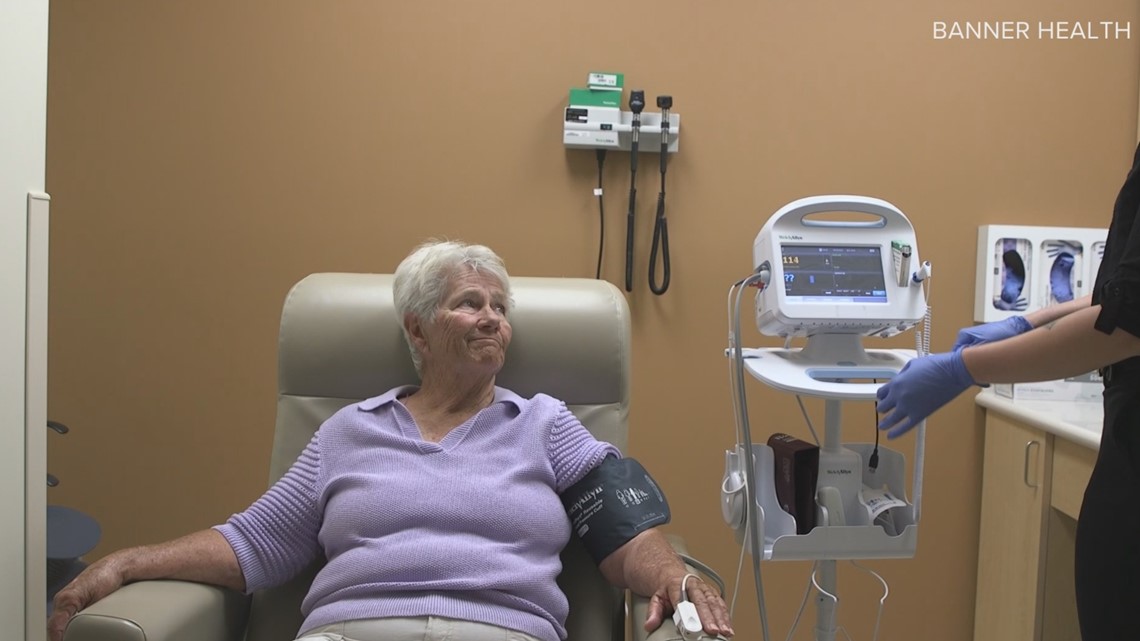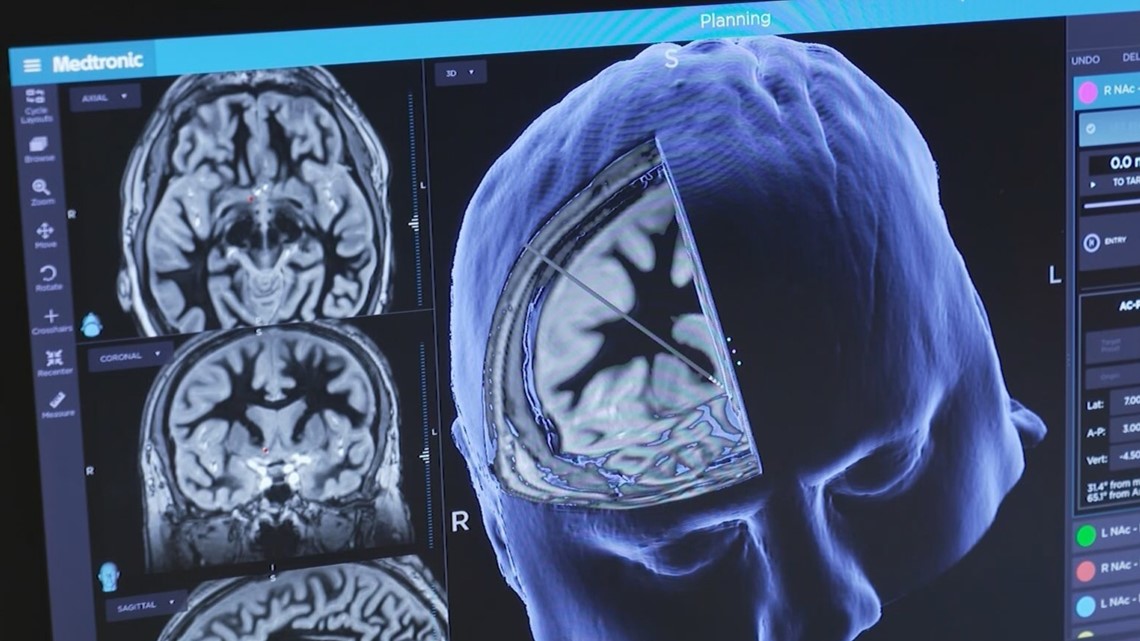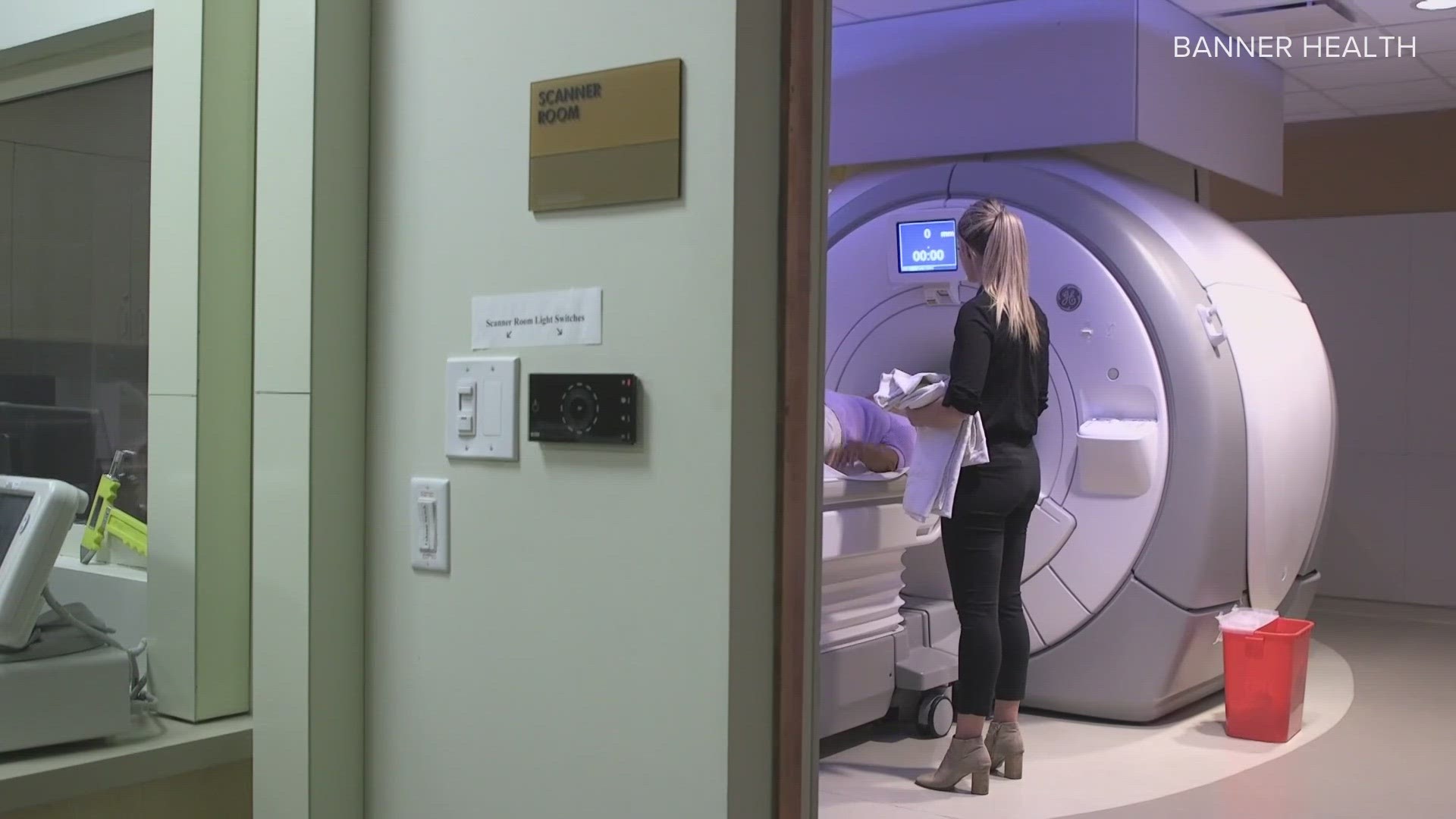PHOENIX — Alzheimer’s disease is a growing public health crisis across Arizona. Thousands of people are already affected by the disease, and new stats predict that number will increase.
But one Valley doctor is leading the charge to make a difference when it comes to early prevention of the devastating disease.
Alzheimer’s Association stats show 150,000 people 65 years of age and older are currently living with Alzheimer’s across Arizona.
Right now, Banner Alzheimer’s Institute is involved in a national research study, called AHEAD, the first of its kind to test a treatment, which aims to delay or prevent Alzheimer’s disease symptoms before they become apparent.
“Changes associated with Alzheimer’s disease can start 10 or even 20 years before they symptoms start, said Dr. Po-Heng Tsai, the associate director for the clinical trial program. “So now we’re trying to see if we can get ahead of the disease symptoms, by starting the treatment before the patient has significant cognitive issues.”


Dr. Tsai says the treatment that was approved by the FDA can actually slow down the disease progress.
“It’s very exciting for us,” he said.
The AHEAD clinical trial is testing the effect of an IV treatment, Lecanemab, in people who have no cognitive symptoms of Alzheimer’s disease, but whose tests indicate they’re at risk of developing symptoms. It’s also the first Alzheimer’s trial to recruit people as young as 55 years old who are at risk.
One of the participants, 71-year-old Keith Corban from Scottsdale has been in the study for the past three years. He had four loved ones affected by dementia or Alzheimer’s disease.
“I watched them through a particularly tough time,” he said.
Due to memory loss, two of those four family members couldn’t recognize him before they passed.
“I knew there could be a benefit for me personally, it being a double-blind study… that means I had a 50/50 chance of having the drug, but in the worst case, it would benefit other people,” said Corban.
To date, Corban has had 60 infusions now, and while he doesn’t know if he’s on the drug and it’s working or several changes he’s made with his diet, exercise, and supplements, his overall health has improved.
Together, he and his treatment team have the same hope for the future of patients.
“My hope is that one day Alzheimer’s disease will be very manageable or even preventable disease,” said Dr. Tsai.
“That would be the goal of Alzheimer’s research and with that it would not be the menacing threat that it is,” Corban added.


Participating in the program, Corban gets medical treatment that he wouldn’t normally get. Every six months, he has a complete physical and neurological EKG, blood work, and an MRI on his brain. Another benefit about this program – he’s learned a lot about brain health and cardiovascular health.
The program is set to wrap up in April of 2025, so hopefully through the work they are doing here, some answers will be revealed in the fight against Alzheimer’s and the onset of the disease.
Right now, they are still looking for more people to participate. If you’re interested, just go to: www.aheadstudy.org.
12News on YouTube
Catch up on the latest news and stories on our 12News YouTube playlist here.

